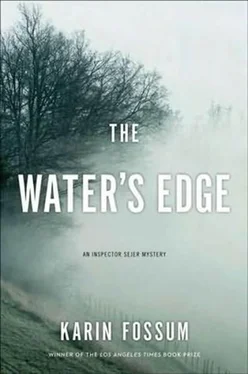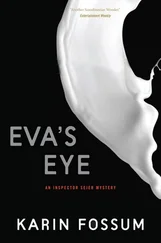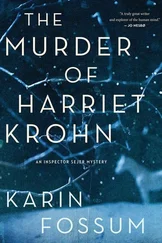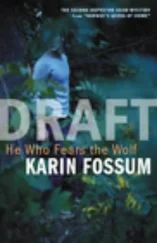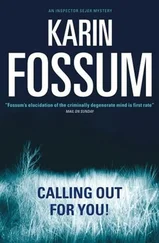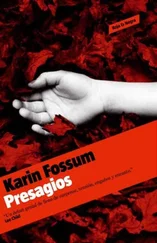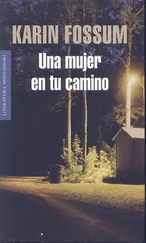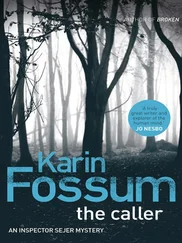'Did it help you?'
'Of course it did. I finally got a chance to talk about how I feel, to explain myself. Not many people are prepared to listen to us, or treat us with respect. You two are a rare exception, believe you me.'
'Can I ask you a very personal question?' Skarre asked.
Åkeson leaned forward. 'Of course you can, young man, fire away. I'm no weakling, I just look like one.'
'Have you ever had a relationship with an adult woman?'
Åkeson smiled coquettishly. 'Well,' he said, pausing theatrically as was his style, 'that depends how you define adult. Yes, of course I have. But I must add that she was a terribly delicate little thing. It didn't last very long, I think it was mainly a desperate attempt to be normal; there's nothing we would rather be, we would prefer to be like you. But, dear Lord, I'm a grown man, I turned fifty last year and I know who I am, it can't be denied and I don't want to either. And that poor little boy up in Linde Forest, words cannot express how I feel. I lay awake half the night, I just couldn't take it in. He was strangled, I suppose? I mean, I'm thinking about his mother and everything she has to go through. Just so you know, none of us feels good about this.'
'We believe you,' Sejer said. 'And we won't take up any more of your time.'
'But don't you want to know where I was on the fourth?' Åkeson asked innocently; he was trying to make the two men stay for as long as possible.
'Certainly,' Sejer said benevolently. 'Where were you on the fourth, in the afternoon?'
'I went to an antiques fair in the town hall,' Åkeson said eagerly. 'It's an annual event, first weekend of September. I normally go, you can find all sorts of hidden treasures and I'm usually lucky.'
'Are you?' Sejer said patiently.
'I bought teacups,' he said happily. 'I bought four and they are truly amazing. French Garden from Villeroy and Boch. They cost me eight hundred kroner. Let me add that if I had bought them in Glassmagasinet, they would have cost me fourteen hundred. And I haven't even had an opportunity to show them to you; that was the reason I wanted to make you tea. I've got the receipt somewhere, and the lady who sold them to me would remember me, I just know she would. I don't blend in. I know I'll get noticed, but I can't be bothered to be ashamed of it.' He brushed a few strands of hair aside. All the time smiling his gleaming smile and displaying his alert nature.
Then he escorted them out. He patted Skarre on the shoulder and detained them with small talk for as long as he could.
'Goodness gracious, how stimulating it is to have company,' he said.
'If you hear any rumours,' Sejer said, 'you'll call us, won't you?'
'That goes without saying; I'll run to the telephone. But there won't be any rumours. Your man won't surface for a long time.'
He had been sleeping with the red shorts pressed against his face. Now he realised that their smell, this tantalising, acidic smell, a mixture of seawater and sweet apples, was slowly starting to fade. He pressed them hard against his nose, his eyelids closing once again. For a long time he lay like this feeling grief and loss, a weight that dragged him deep into the mattress. The sun crept in through a gap between the curtains, it warmed his skin. His eyes were beginning to sting. He thought about the boy he had carried through the forest. There was not an ounce of fat on his slender body, only flesh and bones, only blue veins and tiny, marbled nails. He fantasised about how appetising the little boy had been, his fingers, his earlobes, his toes. He forced his thoughts away, they terrified him, they were delicious, forbidden and secret.
He got up and went into the kitchen and peered inside the fridge. There was hardly any food, he had not been shopping for ages. All he found was some ham with its edges curled up and a tub of rancid butter. The bread had gone stale and was covered by a layer of blue-green mould. But he had a litre of fresh milk and a jar of raspberry jam. He mixed some milk and jam in a old jam jar, and tightened the lid before shaking it. When it was well blended and the milk had turned pink, he drank it straight from the jar; it tasted good. For a while he leaned against the counter, feeling how the sweetened drink gave him strength.
He knew that the red shorts had to go. He had disposed of the trainers by dumping them in a clothes collection point in the town centre. If the police arrived, they were bound to turn over the house, he knew he would have to be prepared for that, but he could not bear to part with the red shorts. Resolutely he went into his bedroom to fetch the shorts. He rolled them into a tight sausage and hid them at the bottom of a box of cornflakes which he placed at the far end of the cupboard. He felt he had been very clever. They'll never think to look there, he thought. At night, he would get out the shorts and take them with him to bed. Because they would never turn up at night, he was convinced of that, the nights were his own, the few free ones he had left.
He went over to the window. He parted the curtains slightly and looked out at the farmhouse, at the red barn. A blue tractor was parked in the farmyard, where there was a maple tree with a large, lush crown. He had rented the cottage for years, it was over a hundred years old and in very bad condition. The bedroom walls were covered by slimy mould. He had heard that mould released a gas which could be toxic. Not that he cared about that, his life was not worth a great deal, he was certainly not clinging to it. The house did not have a bathroom either, just an old shower cubicle in a corner of the kitchen with a tatty, yellow shower curtain covered with mildew. Nevertheless the cottage had a certain appeal; it had a history and charm. Little, square windows with broad windowsills and thick beams in the ceiling. Hops grew around the entrance. The cottage was situated in a dip and the big, white-painted farmhouse towered at the top of the hill. The farmer lived there with his wife and four daughters. Every summer the girls would lie on the lawn in tiny bikinis, lined up like a row of golden fish fillets. He never even so much as looked at them. Adjacent to the farmhouse was another cottage where the farmer's mother lived; she was eighty-six.
Four Polish men would turn up to work in the fields every May and they would stay on until November. They were nodding acquaintances, but he never stopped to talk to them. They slept in the storehouse. Sometimes, in the evenings, he would hear laughter and voices coming from in there, in a language he did not understand but found exotic. One of them was good at playing the mouth organ and another had a distinctive laugh, which would roll across the farmyard from time to time. They were polite, friendly and hard-working people.
As he stood there staring out into the farmyard it suddenly occurred to him that pulling the curtain had been a stupid thing to do. He was not in the habit of doing that and it might arouse suspicion. He flung the fabric aside and the light flooded in. Whether he wanted to or not, he would have to start his car and go food shopping. His white car. The car they were looking for. And he would buy a newspaper, obviously, if he could muster the courage. How much did they know, what had they found, were they about to catch him, was it only a matter of days before they would break down his door? He remembered his anorak, he could never wear it again, he had to get rid of it. He hurried out into the hall to see what else was hanging on the coat stand. A coat with big pockets and an old leather jacket, its lining had practically been worn away and the leather had cracked on the elbows. In the pocket he found an ancient cinema ticket and the stick from an ice-cream.
He went back into the kitchen to have a shower, pulled aside the shower curtain, stepped inside and turned on the taps. While he showered he made more plans. Don't change your habits, he thought, keep doing the things you always did, say hello to people and be friendly, or better still, fling out your arms and laugh heartily. Go outside and wash the car, perhaps, give the Poles a friendly nod, talk about the weather. If anyone heard a rumour about him, they would dismiss it instantly. Not him, they would say, he's behaving completely normally.
Читать дальше
